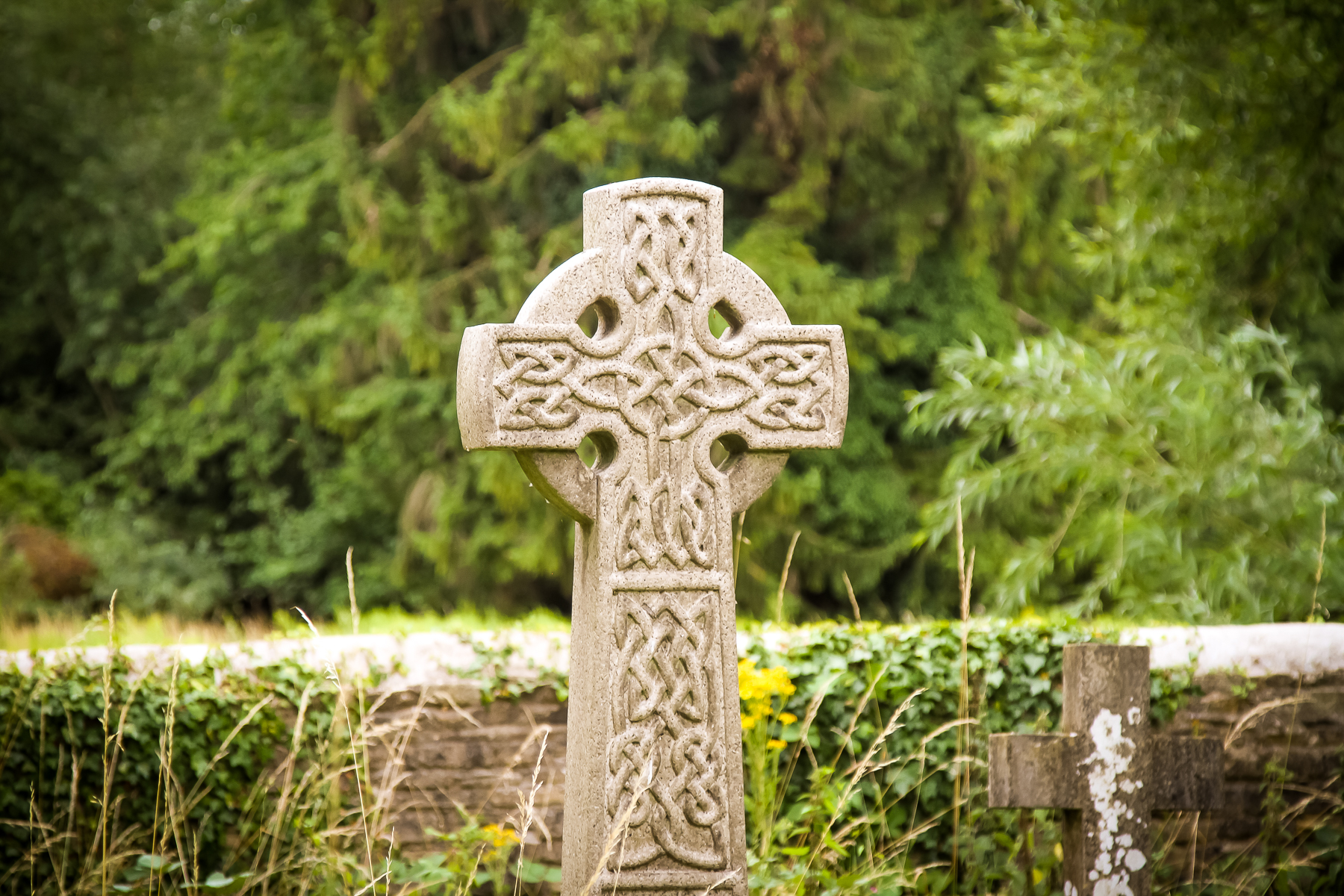Cultivating a Maker’s Life is a column that explores creative living expressed in a whole life. Generous, creative living is not something that is confined to a studio or workspace. It is conceived in the garden, gestates on hiking trails, nurtured in cinnamon-scented ovens, and matures at family dinner conversations. Come with me while we explore all the stages of making and living.
![]()
My kiln was dead, to begin with. As dead as a doornail, I presume, although with the esteemed Mr. Dickens, I, too, am unconvinced as to the deadness of such metal fasteners.
To be fair, my ceramic kiln was about 50 years of age and had lived a full and productive life. I, myself, owned and operated it for about four years, and it provided me with a full range of emotions. We created many beautiful and useful things together, but now nothing worked. My mind turned in torrents of turmoil like sea billows roll. Not exactly a picture of fortitude, I’m afraid.
After several attempts to find help for my kiln proved fruitless, a quick and unhopeful search through several online marketplaces revealed one unforeseen and unsought possibility. A brand new, larger, and better-equipped kiln was available from a private seller for nearly one-third its usual price. It was a significant amount of money, but it still seemed too good to be true. Dear child, isn’t that the way of our Father? When will you learn? How many times must He teach me that He catches when we fall, He knows our frames, and He helps us in our weakness? He is all compassion, and His love endures forever. He is too good.
On discovering this new kiln, my own inner doubts and frailty spiraled into questions. Will I need new wiring? A new electrical breaker? Can I actually afford it? What about the bills that I have to pay this month? Next month? Can I withdraw that much cash in a day from my ATM? Is the seller a serial killer (I actually always ask this first, of course)? It needs a weird breaker (45 amp). Where do I even find one of those? One by one, these questions and excuses were answered. No, I didn’t need new wiring; my existing wiring was more than sufficient. Yes, I needed a new breaker, but I was able to find one rather easily. Yes, my bank would let me withdraw the cash. And the bills for this month and next?
Well, my heavenly Father knows those needs. He gently reminded me that tomorrow’s worry belongs to tomorrow, and He’s been caring for sparrows and lilies for a long, long time.
Even after these worries were laid to rest, I continued to dig holes of distress like broken cisterns that won’t hold water. Upon the kiln’s inaugural firing, my stress levels rose once again. “It will probably misfire. Maybe it was priced so low because the elements don’t work properly. They probably don’t. It’s not working, is it? I know it seemed like it fired OK and shut off at the correct time, but most likely not. Just wait until morning.” These thoughts ran circles through my head and heart. How do I take these worries and lay them down instead of hauling them around like old bones?
In that glorious chapter of Hebrews 11, Joseph—that savior of his family and Egypt and much of the known world at his time—is given only one honorable mention, and it’s not a particularly amazing one. If I were to write his epitaph in Hebrews, it might read like this. “By faith, Joseph, favored by his father, despised and rejected by his brothers, when sold as a slave to Egypt did not succumb to fear and doubt or consider revenge. Rather, he submitted unto the will of God, faithfully serving both Potiphar and Pharaoh, and so was found to be filled with the wisdom of heaven. By faith, Joseph, being divinely warned in dreams, was raised to second in command of Egypt, and provided grain and salvation for his family and the world.”
But this is not what is written in Hebrews about Joseph. Instead, it references what must be one of the oddest moments in Jewish history.
“By faith Joseph, at the end of his life, made mention of the exodus of the Israelites and gave directions concerning his bones.” — Hebrews 11:22 ESV
That’s all.
I’ve thought about this incident a lot and tried to imagine how it might have occurred. The end of Genesis says that Joseph was embalmed and put into a coffin, which seems to indicate mummification. This makes sense, as he was a high-ranking Egyptian official. But 400 years later, when it came time to leave Egypt, how did Moses go about retrieving those bones? Grave-robbing has been frowned upon throughout all of human history and perhaps nowhere more than in ancient Egypt. I can hardly believe that Moses walked up to the guards at Joseph’s tomb and said, “Hi, uh, sorry, but I just need to borrow a mummy for a little trip out of town.”
On the night of the Passover, as the angel of death is making rounds and the Israelite children are eating lamb with sandals tied and belongings on their backs, does Moses hold a finger to the air and say, “Wait, I know we need to go, but did we get the bones?” But incredibly, one way or another, Moses succeeded! Scripture is careful to record that Joseph’s bones left Egypt with his descendants.
But the bigger question to me in this crazy moment is, why? Why is this recorded? Why—out of all that could have been said about Joseph—is this his legacy in Hebrews 11? And why do I, thousands of years later, need to know about it?
Tombs are meant to be filled. They are the evidence of things not hoped for, the assurance of the debt that all men must pay. Holes dug into the earth are meant to hold things. For this reason, Nazi captors used the psychological torture of forcing victims to dig a hole only to have it be filled in by yet another hole. We don’t tear open the ground without purpose. No one digs a grave without bones to fill it.
It’s a perfect picture, really, of the desperate brokenness of our world and the way things were meant to be—of how God works all things in a manner that seems backwards to us only because we are the people who have created and inhabit Backwardsville. We fill tombs. God empties them.
I, too, dig up bones, but not for any good purpose. Whenever I excavate old skeletons and carry them around, it doesn’t go well. I am, by nature, a master worrier (see the anecdote above). I have a long memory, and I have to work hard to set aside anxieties, sometimes stomping and jumping up and down on their graves. “Go away and never come back!” I yell alongside Smeagol as he tries to rid himself of Gollum’s influence. Too often, just a few days (hours?) after this happens, I’ll find myself hauling around an old femur of doubts or in angry conversation with Yorick’s skull.
Worry is the weight that besets me. It is heavier than a hundred-pound sack of chicken feed, but I carry it nonetheless. It is such a curious thing that hauling around something that is so tiresome requires so much courage and resilience to just put down. I do not possess the strength to lay worry in the ground. All praise to the Prince of Peace who bears our burdens and carries our sorrows! He alone is the source of any fortitude that I possess.
Early on the first day of the week, before the sun had arisen, a tomb belonging to another Joseph was emptied, too. Our blessed Savior needed no one to remove His bones or open His grave. Just like Joseph-son-of-Jacob’s tomb was emptied, so was Joseph of Arimathea’s tomb. And now, Christ bids me lay my skeletons inside. He seals that tomb with all my concerns and skulls and femurs inside where they will never come back.
The morning after I fired my new kiln for the first time, I opened it. It had fired perfectly. Per. Fect. Ly. Not only that, but it held more than twice as much as my old one. I cried at the goodness of a God who gives more than we can ask or think—a God who takes my worries and doubts with gentleness and lays them to rest. A God who gently holds old kilns, bones, anxious fears, and tired hearts and gives rest.
![]()
The featured image, “Holywell Cemetery Celtic Cross,” is courtesy of Lancia E. Smith and is used with her glad permission for Cultivating.
Second-generation homeschooling mom of five wee snickbuzzards, Jordan Durbin is a maker of humble pottery, fine artist, calligrapher, gardener, pickle maker, baker of all things gluten-inclusive and butter-laden, violinist, vocalist, rabbit raiser, wife of one good man, lover of her blessed Redeemer. She has a Bachelor’s degree in fine art from Grace College in Winona Lake, Indiana. She is an avid coffee drinker, reader, and published children’s book author and illustrator. She aspires to proclaim the resurrection with every moment of her life.
Leave a Reply
A Field Guide to Cultivating ~ Essentials to Cultivating a Whole Life, Rooted in Christ, and Flourishing in Fellowship
Enjoy our gift to you as our Welcome to Cultivating! Discover the purpose of The Cultivating Project, and how you might find a "What, you too?" experience here with this fellowship of makers!


Add a comment
0 Comments